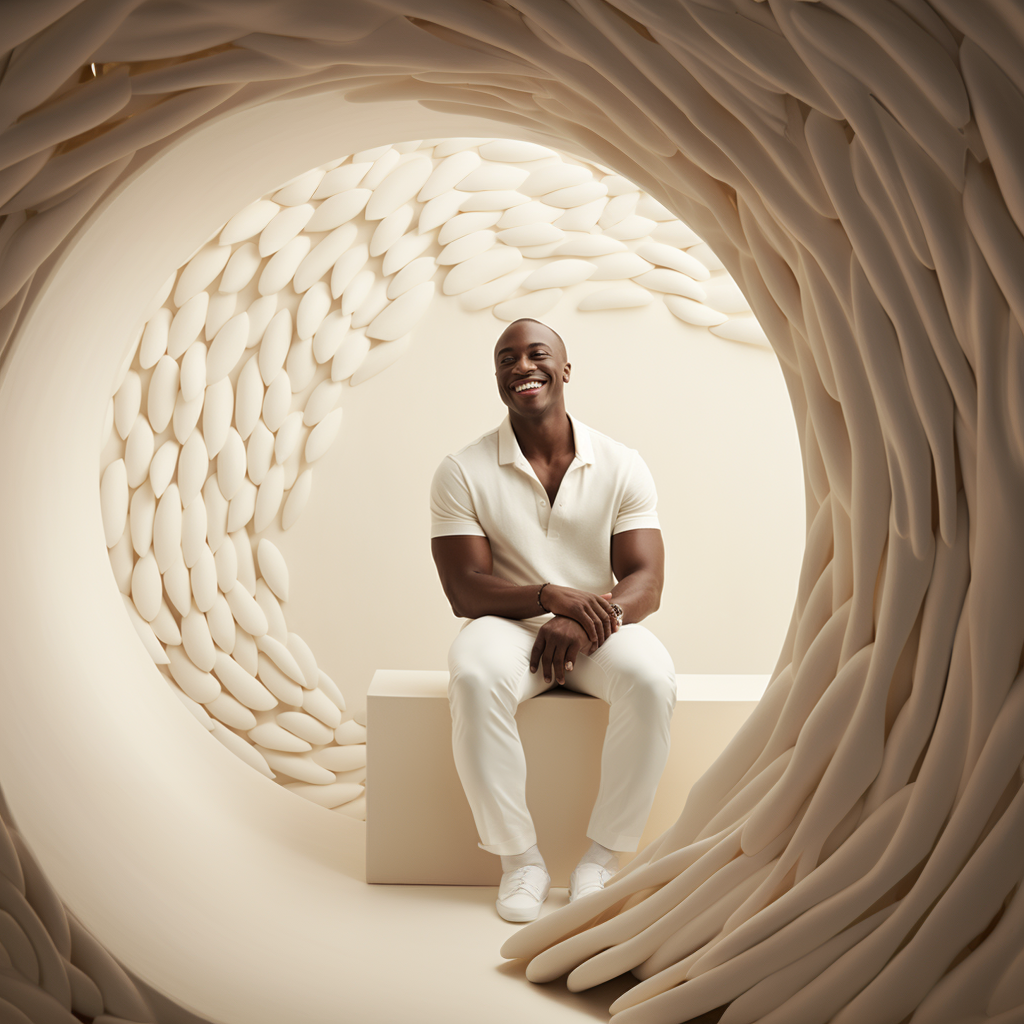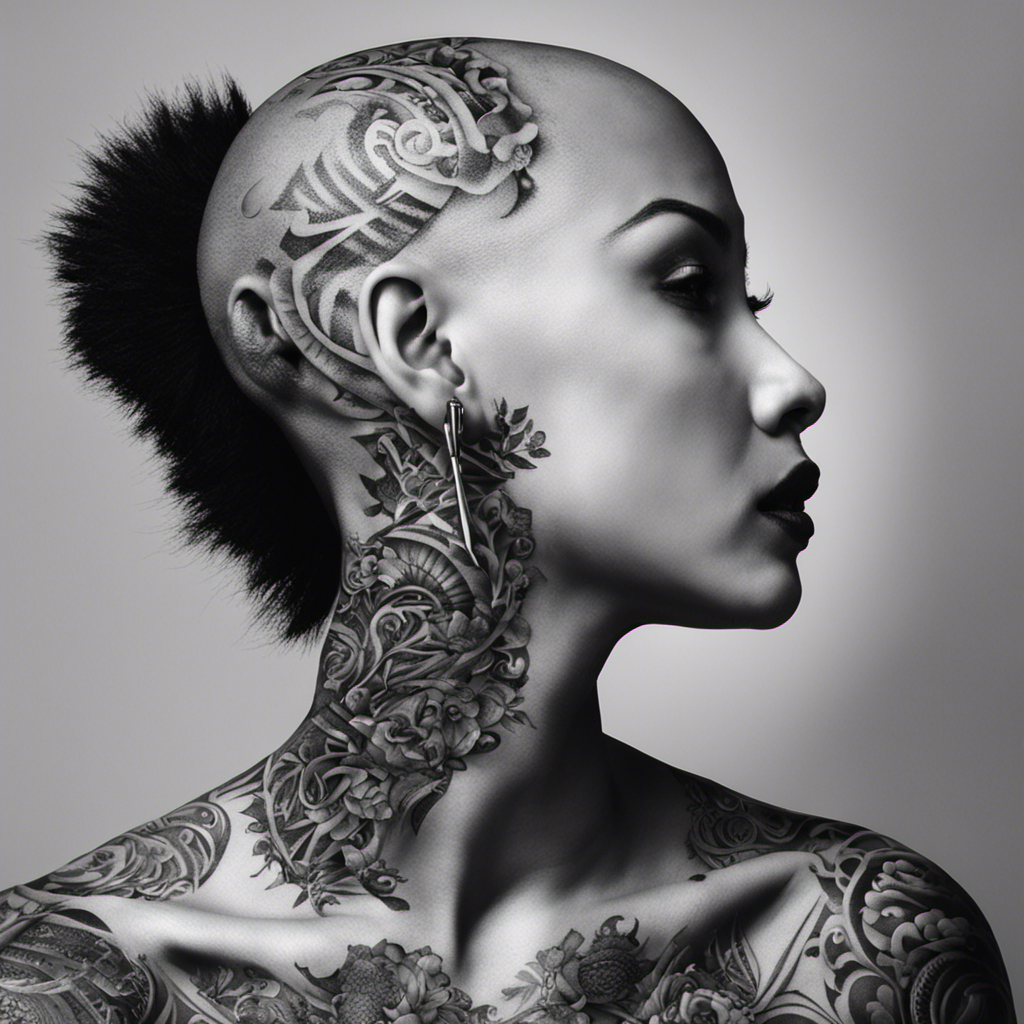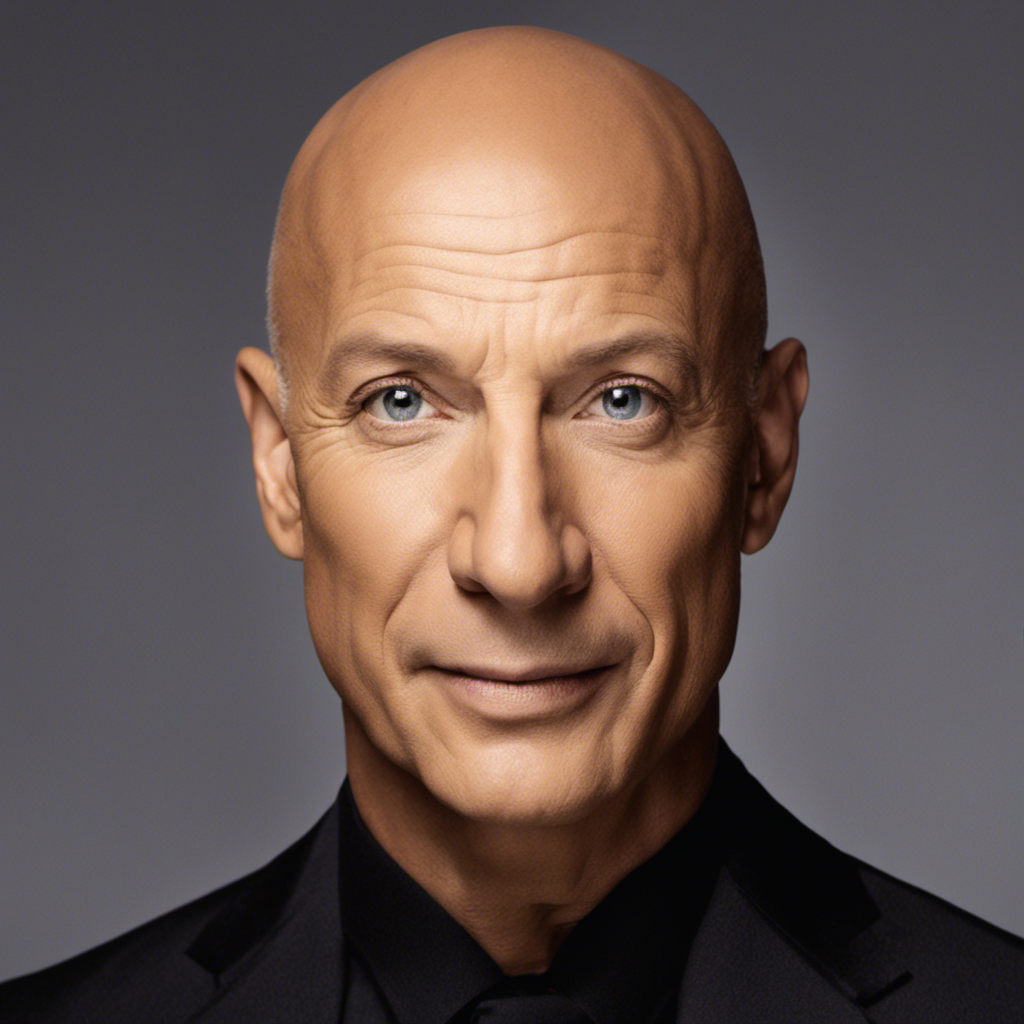Community and Stories
Why Do They Shave Head for Cancer

As someone who has survived cancer, I am deeply aware of the significant symbolism attached to head shaving for cancer. It symbolizes a physical change that embodies the courage and persistence of individuals battling this illness.
In this article, we will explore the connection between cancer and hair loss, delve into the emotional impact of shaving heads, and discuss how this act of unity raises awareness and funds for cancer research.
Join me on this journey as we debunk myths and hear personal stories about why individuals choose to shave their heads for cancer.
Key Takeaways
- Shaving heads for cancer is a powerful symbol of solidarity and support.
- Hair loss during cancer treatments can have a significant psychological impact on patients.
- Shaving heads for cancer creates a supportive community and raises awareness about the disease.
- Shaving heads for cancer patients empowers and uplifts them, promoting emotional well-being.
The Symbolic Power of Shaved Heads
Shaving my head for cancer treatment is a powerful symbol of solidarity and support. This symbolic gesture holds great cultural significance in many societies around the world.
By voluntarily removing our hair, we are showing empathy and standing in unity with those battling cancer. The act of shaving our heads signifies a willingness to sacrifice our appearance in order to raise awareness and funds for cancer research.
It also serves as a visible reminder of the challenges faced by cancer patients, helping to break down stigmas and promote understanding. This cultural tradition has become a global phenomenon, with individuals, communities, and organizations coming together to show their support.
Through this act, we aim to inspire hope, foster compassion, and encourage others to join the fight against cancer.
Understanding the Connection Between Cancer and Hair Loss
When undergoing cancer treatments, you may experience hair loss, which is a result of the connection between cancer and the effects of chemotherapy. Hair loss, also known as alopecia, occurs because chemotherapy drugs target rapidly dividing cells, including the hair follicles. This can lead to significant psychological impact on patients, as hair loss is often associated with a loss of identity and self-confidence. It is important to understand the cultural significance of hair as well, as it plays a role in our appearance and how we are perceived by others. To visualize the connection between cancer and hair loss, consider the following table:
| Cancer Treatment | Hair Loss Effect |
|---|---|
| Chemotherapy | Widespread hair loss |
| Radiation therapy | Hair loss in treated area |
| Targeted therapy | Minimal hair loss |
| Immunotherapy | Minimal to moderate hair loss |
Understanding the connection between cancer and hair loss can help healthcare professionals provide appropriate support and counseling to patients facing this side effect.
Exploring the Emotional Impact of Shaving Heads for Cancer
Shaving one’s head can have profound psychological effects, impacting a person’s self-image and emotional well-being.
The act of willingly embracing baldness has been found to empower individuals, allowing them to reclaim control over their appearance and embrace a new sense of self.
Understanding the psychological effects of shaving and the potential for empowerment through baldness can shed light on the emotional journey of individuals who choose to shave their heads.
Psychological Effects of Shaving
You may experience a range of emotions after you’ve shaved your head for cancer, such as a sense of liberation or vulnerability.
The psychological impact of shaving one’s head for cancer can be significant. Many individuals report a decrease in self-confidence initially, as they adjust to their new appearance. This is because hair is often associated with beauty and femininity or masculinity.
However, over time, some individuals find that their self-confidence actually increases. This may be due to a sense of empowerment and strength that comes from facing and overcoming the challenges of cancer.
It is important to note that the psychological effects of shaving can vary from person to person. Some individuals may experience a boost in self-confidence, while others may need additional support to navigate their emotions during this process.
Empowerment Through Baldness
Facing a cancer diagnosis can be overwhelming, but embracing baldness can empower individuals to find strength and resilience in their journey. Here are three reasons why embracing baldness can be empowering:
-
Bald beauty: Embracing the aesthetics of baldness allows individuals to redefine societal beauty standards. Without hair, one’s features become the focal point, highlighting their unique facial structure and expressions. This shift in perspective can help individuals appreciate their natural beauty and feel more confident in their appearance.
-
Building confidence: Embracing baldness can help individuals build confidence by accepting and embracing their new look. By facing their fears head-on and embracing their baldness, individuals can cultivate a sense of self-assurance and inner strength. This newfound confidence can positively impact various aspects of their life, including relationships, work, and overall well-being.
-
Breaking stereotypes: Society often associates baldness with illness or aging. By embracing baldness, individuals challenge these stereotypes and redefine what it means to be beautiful and confident. Their courage can inspire others, promoting inclusivity and acceptance in society.
The Unity and Support Shaving Heads Brings to Cancer Patients
Symbolic solidarity for cancer is an empowering gesture for patients that creates a supportive community.
When individuals shave their heads in support of cancer patients, it symbolizes their commitment to stand by them throughout their journey.
This act not only shows unity and support, but also serves as a powerful reminder that no one has to face cancer alone.
Symbolic Solidarity for Cancer
When someone shaves their head in solidarity for cancer, it’s a powerful symbol of support and unity. This symbolic gesture holds an emotional connection for both the person shaving their head and the cancer patient they are supporting.
Here are three reasons why shaving heads for cancer has such a profound impact:
-
Visibility: Shaving one’s head draws attention to the cause, raising awareness and encouraging conversations about cancer. It serves as a visible reminder of the challenges faced by cancer patients and the need for support.
-
Empathy: By voluntarily giving up their hair, individuals demonstrate empathy towards those who have lost their hair due to cancer treatments. It helps create a sense of understanding and connection with cancer patients, fostering a compassionate community.
-
Breaking Stigma: Shaving one’s head challenges societal norms and beauty standards, breaking the stigma associated with hair loss. It promotes acceptance and shows that what truly matters is supporting those affected by cancer, regardless of appearance.
Shaving heads for cancer is a meaningful way to show solidarity, create awareness, and foster an empathetic and inclusive community.
Empowering Gesture for Patients
Shaving my head in support of cancer patients is a powerful way to empower and uplift those going through treatment. It is not just about showing solidarity, but also about creating supportive networks and promoting emotional well-being.
Studies have shown that individuals who shave their heads for cancer patients often experience a sense of camaraderie and connection with those battling the disease. This act of solidarity helps to foster a supportive environment where patients feel understood and supported.
Additionally, shaving one’s head can be a cathartic experience that allows individuals to take control of their appearance and embrace their inner strength. By standing in solidarity with cancer patients, we can provide them with the emotional support they need to navigate their treatment journey.
Creating a Supportive Community
Being part of a supportive community is essential for cancer patients as it provides them with the emotional strength and understanding they need during their treatment journey. Supportive relationships and community building play a crucial role in helping patients cope with the challenges of cancer. Here are three reasons why a supportive community is so important:
-
Emotional support: Cancer can be a lonely and overwhelming experience. Having a community of understanding individuals who can provide emotional support can make a huge difference in a patient’s well-being. It allows them to share their fears, frustrations, and triumphs with people who truly understand what they are going through.
-
Practical assistance: A supportive community can offer practical help in various ways, such as providing transportation to appointments, preparing meals, or running errands. These small acts of kindness can greatly alleviate the burden on patients and their families.
-
Information and resources: A strong community can provide access to valuable information and resources related to cancer treatment options, support groups, and helpful services. This knowledge can empower patients to make informed decisions about their care and connect with the resources they need.
How Shaving Heads Raises Awareness and Funds for Cancer Research
If you want to make a difference and show support for cancer research, shaving your head can help raise awareness and funds. Shaving heads has become a popular way to support those battling cancer and to raise awareness about the disease. Many individuals and organizations have organized shaving events where participants willingly shave their heads to demonstrate solidarity with cancer patients. These events attract attention and generate conversations about cancer, leading to increased awareness in the community. Additionally, participants often seek sponsorship or donations, turning the act of shaving into a fundraising effort for cancer research. By shaving their heads, individuals not only show support for those fighting cancer but also contribute to the financial resources needed to find a cure. Shaving heads indeed plays a significant role in raising awareness and supporting fundraising efforts for cancer research.
Transition: Now that we understand how shaving heads can raise awareness and funds for cancer research, let’s explore the common misconception and debunk the myth: does shaving heads actually help in the fight against cancer?
Debunking Myths: Does Shaving Heads Actually Help in the Fight Against Cancer
You may be surprised to learn that shaving your head does not directly contribute to the fight against cancer, but it can still play a role in raising awareness and supporting fundraising efforts.
Let’s debunk some misconceptions and look at the scientific evidence:
-
Hair does not contain cancer cells: Contrary to popular belief, hair itself does not contain cancer cells. Shaving your head does not remove or prevent the growth of cancer cells.
-
Symbolic gesture: Shaving your head is a symbolic gesture that shows solidarity and support for those battling cancer. It helps raise awareness and encourages conversations about the disease.
-
Fundraising opportunity: Many people choose to shave their heads as part of fundraising events for cancer research and support organizations. It is a way to raise funds and make a tangible impact on the fight against cancer.
While shaving your head may not directly cure cancer, it can make a difference by raising awareness and funds.
Now, let’s explore the personal stories of individuals who choose to shave their heads for cancer.
Personal Stories: Why Individuals Choose to Shave Their Heads for Cancer
Many individuals opt to shave their heads as a way of expressing solidarity and support for those affected by cancer. Exploring the motivations behind this choice reveals a range of personal experiences that drive people to take such a bold step. Through conversations with individuals who have shaved their heads in support of cancer patients, it becomes clear that the decision is often rooted in a desire to show empathy and raise awareness. Personal experiences, such as witnessing a loved one battle cancer or overcoming the disease themselves, can deeply impact someone’s decision to shave their head. This act serves as a visual representation of their commitment to standing alongside those affected by cancer, showing them they are not alone in their fight.
| Motivation | Personal Experience | Impact |
|---|---|---|
| Empathy | Witnessing a loved one’s battle with cancer | Raises awareness and shows support |
| Personal Connection | Overcoming cancer personally | Inspires others and gives hope |
| Solidarity | Seeing the struggles of cancer patients | Encourages others to join the cause |
These personal stories highlight the power of shaving one’s head as a symbol of support for cancer patients. Whether driven by empathy, personal connection, or a desire for solidarity, these individuals are making a meaningful impact in the fight against cancer.
Frequently Asked Questions
Can Shaving Your Head Prevent or Cure Cancer?
Shaving your head does not prevent or cure cancer. It is a personal choice, often done to show support for cancer patients or to raise awareness. Prevention methods and alternative treatments should be pursued for cancer management.
Does Shaving Your Head Make Chemotherapy More Effective?
Shaving your head for cancer doesn’t make chemotherapy more effective. However, it can help manage the psychological impact of hair loss during treatment. After completing chemotherapy, hair typically regrows, often with increased growth.
What Are the Long-Term Effects of Shaving Your Head for Cancer?
The long-term effects of shaving your head for cancer may include changes in hair growth and temporary loss of self-confidence. However, it is important to note that these effects vary from person to person.
Are There Any Risks or Complications Associated With Shaving Your Head?
There are some risks and complications associated with shaving your head, such as skin irritation, cuts, and infections. It is important to take proper precautions and follow good hygiene practices to minimize these risks.
How Can Shaving Your Head Raise Awareness and Funds for Cancer Research?
Shaving your head for cancer raises awareness by drawing attention to the cause. It also serves as a fundraising method, as participants often collect donations from friends and family to support cancer research.
Conclusion
In conclusion, shaving heads for cancer holds immense symbolic power and serves as a strong expression of unity, support, and awareness. It is a powerful way for individuals to emotionally connect with cancer patients and show solidarity in their fight against the disease.
Contrary to myths, shaving heads does not directly help in the fight against cancer but it does play a significant role in raising funds for research. Through personal stories and shared experiences, we can understand why individuals choose to shave their heads for cancer and the impact it has on the community.
As the saying goes, ‘Actions speak louder than words,’ and shaving heads for cancer is a tangible action that brings people together in the battle against this devastating disease.
Phoenix, aptly named for the mythical bird that rises from the ashes, embodies resilience, transformation, and growth – qualities that are palpably present in his writing for Head Shave Products. As a writer, Phoenix brings a fresh, rejuvenating perspective to the world of shaving, often unearthing stories and insights that are both transformative and enlightening.
Community and Stories
Why Does the Army Shave Your Head

When I first joined the military, I was surprised to learn that I would have to shave my head. At first, it seemed like a drastic measure. But after learning more about the reasons behind this tradition, I found it to be quite persuasive.
From historical traditions to practical considerations, head shaving serves a variety of purposes in the military. In this article, we will explore the origins, benefits, and cultural significance of why the army shaves your head.
Key Takeaways
- Shaving soldiers’ heads in the military has deep cultural traditions rooted in military history.
- Head shaving symbolizes discipline, uniformity, and sacrifice for country.
- Shaving heads fosters unity, camaraderie, and a shared identity among soldiers.
- Shaved heads provide practical benefits such as easy cleanliness and hygiene maintenance, prevention of lice infestation, and better comfort and safety in combat situations.
Historical Origins of Head Shaving in the Army
So, why does the Army shave your head?
Well, it all goes back to the historical origins of head shaving in the Army. The practice of shaving soldiers’ heads has deep cultural traditions rooted in military history. In ancient times, soldiers would shave their heads before going into battle as a sign of unity and commitment to their cause.
It was also a practicality reason, as having short hair made it easier to wear helmets and maintain personal hygiene in the field. This tradition has carried on throughout the years, symbolizing discipline, uniformity, and the sacrifice soldiers make for their country.
Moving forward, let’s delve into the practical reasons for head shaving in the military.
Practical Reasons for Head Shaving in the Military
When it comes to the practical reasons for head shaving in the military, there are several key points to consider.
First and foremost, the cleanliness and hygiene benefits cannot be overlooked. With a shaved head, soldiers can easily maintain cleanliness, preventing the buildup of dirt, sweat, and debris.
Additionally, the uniformity of having everyone with a shaved head fosters a sense of team spirit and unity among the soldiers, highlighting their shared commitment to the mission at hand.
Cleanliness and Hygiene Benefits
One of the benefits of shaving your head in the army is that it helps maintain cleanliness and hygiene. Having a shaved head reduces the chances of lice or other pests infesting your hair.
In military environments, where soldiers often work in close quarters and share living spaces, maintaining cleanliness is crucial to prevent the spread of illnesses and diseases. Additionally, shaving the head makes it easier to maintain personal hygiene, as there are no longer any hair strands to trap sweat, dirt, or debris. This allows for better cleanliness and reduces the risk of skin infections.
While shaving one’s head may limit self-expression in terms of hairstyle, it serves a practical purpose in promoting hygiene and overall health in the military.
Uniformity and Team Spirit
To foster a sense of unity and camaraderie among soldiers, it’s important to embrace uniformity and team spirit.
In the military, one way this is achieved is through the practice of shaving heads. This act of uniformity helps to strip away individual identity and promote a collective identity among soldiers.
By removing the visual differences that hair can create, soldiers are encouraged to focus on their shared goals and responsibilities.
Additionally, the act of shaving heads has deep cultural traditions within the military. It symbolizes a fresh start, a shedding of civilian life, and a commitment to the values and principles of the military.
This ritualistic act also aids in the formation of a soldier’s identity, as they become part of a larger group with a shared purpose and mission.
Psychological Impact of Shaved Heads in the Army
When it comes to the psychological impact of shaved heads in the army, two key points to consider are identity and camaraderie, and uniformity and discipline.
The act of shaving one’s head in the military often serves as a way to strip away individual identity and create a sense of unity among soldiers. This can foster a strong sense of camaraderie and belonging within the military community.
Additionally, the uniformity and discipline enforced by the requirement of shaved heads helps to instill a sense of order and conformity, which is essential in military operations.
Identity and Camaraderie
The army shaving your head fosters a sense of identity and camaraderie among soldiers. It may seem strange to think that something as simple as a haircut can have such a profound impact, but in the military, it plays a significant role in shaping the soldiers’ mindset. Here’s why:
-
Identity: The uniformity created by shaved heads helps soldiers see themselves as part of a larger unit, promoting a sense of belonging and purpose. It eliminates individuality and emphasizes their collective identity as soldiers.
-
Mental Health: Removing the need for elaborate grooming standards allows soldiers to focus on their mission and mental well-being. It reduces the stress and time spent on personal appearance, enabling them to prioritize their mental health.
-
Camaraderie: Sharing the experience of a shaved head creates a bond among soldiers. It symbolizes their commitment to the military and creates a sense of camaraderie and solidarity.
Transitioning into the next section, this emphasis on identity and camaraderie through grooming standards contributes to the overall importance of uniformity and discipline in the army.
Uniformity and Discipline
Maintaining a sense of uniformity and discipline is crucial for soldiers to function as a cohesive unit. One way the military achieves this is through head shaving traditions.
The act of shaving one’s head is symbolic of shedding individuality and embracing a collective identity. It serves as a visual reminder that we are part of something bigger than ourselves. Additionally, head shaving can have psychological effects on soldiers.
It can strip away any personal attachments to one’s appearance and force individuals to focus solely on their duties and responsibilities. This can help create a sense of equality among soldiers, as everyone looks the same and is treated the same.
Overall, head shaving traditions play a significant role in fostering uniformity, discipline, and a strong sense of camaraderie within the military.
Hygiene and Maintenance Benefits of Shaved Heads in the Military
Having a shaved head in the military provides soldiers with easier hygiene maintenance. The cultural implications of this practice are rooted in the military’s emphasis on uniformity and discipline. Personal expression is often sacrificed in favor of a collective identity. However, there are practical benefits to having a shaved head that go beyond cultural norms.
- Shaved heads reduce the risk of lice infestation, which can be common in close quarters and unhygienic environments.
- Maintaining a shaved head allows for easier cleaning and inspection of the scalp for any skin conditions or injuries.
- It also minimizes the need for extensive hair care products and reduces the time spent on grooming, allowing soldiers to focus more on their duties.
Uniformity and Team Cohesion Through Head Shaving in the Army
In addition to the hygiene and maintenance benefits, shaving heads in the military also serves a purpose of uniformity and team cohesion. The historical origins of this practice can be traced back to ancient times when soldiers would shave their heads to prevent lice infestations and eliminate any advantage enemies could gain by grabbing their hair during combat.
The psychological impact of head shaving in the army is significant. By removing individuality and creating a sense of sameness, soldiers become part of a unified team, where distinctions based on appearance are minimized. This fosters a strong sense of camaraderie and promotes a shared identity among the troops. It also helps in building trust and teamwork, as soldiers are more likely to rely on each other when they feel a strong connection and similarity with their comrades.
To better illustrate the impact of head shaving in the military, here is a table:
| Psychological Impact | Historical Origins |
|---|---|
| Uniformity | Preventing lice infestations |
| Team Cohesion | Eliminating advantage in combat |
| Camaraderie | Fostering shared identity |
| Trust and Teamwork | Promoting reliance on each other |
Safety and Comfort Factors in Head Shaving for Soldiers
The safety and comfort of soldiers are important considerations when it comes to head shaving in the military.
- Safety Precautions:
- Shaving heads reduces the risk of lice infestation and the spread of infectious diseases in close quarters.
- Short hair decreases the chances of hair getting caught in equipment or obstructing vision during combat or training.
- Regular head shaving enables soldiers to maintain a clean and professional appearance, promoting discipline and uniformity.
Soldier Comfort:
- Shaving the head can provide relief in hot and humid environments by reducing sweat and allowing better heat dissipation.
- It eliminates the need for extensive hair care, saving time and effort for soldiers.
- A shaved head also ensures a snug fit of helmets and protective gear, enhancing overall comfort and safety.
Considering safety precautions and soldier comfort, head shaving in the military serves practical purposes while maintaining a unified and professional appearance.
Cultural and Symbolic Significance of Shaved Heads in the Military
When you join the military, a shaved head holds cultural and symbolic significance. This practice has deep roots in military history and is seen as a symbol of unity, discipline, and commitment to the mission.
Culturally, a shaved head represents a fresh start and a shedding of one’s civilian identity. It is a way to create uniformity among soldiers, emphasizing that they are part of something greater than themselves.
Psychologically, shaving one’s head can have a powerful impact. It can strip away personal attachments and ego, fostering a sense of camaraderie and teamwork. Additionally, a shaved head can provide practical benefits, such as easier maintenance in the field and reducing the risk of lice and other hygiene-related issues.
With this understanding of the cultural and psychological impact, it is important to explore modern perspectives on head shaving in the army.
Modern Perspectives on Head Shaving in the Army
When it comes to head shaving in the army, modern perspectives have evolved to reflect changing societal norms. While the cultural and symbolic significance of shaved heads in the military remains, there are now additional considerations and viewpoints to be taken into account.
Greater emphasis on inclusivity: The army recognizes the importance of creating an inclusive environment where all soldiers feel accepted and valued, regardless of their appearance.
Practicality and hygiene: Shaving heads in the military is often seen as a practical measure to maintain cleanliness and prevent the spread of diseases or pests.
Uniformity and discipline: Shaved heads can promote a sense of unity and discipline among soldiers, emphasizing their commitment to a common cause.
Overall, the modern perspective on head shaving in the army acknowledges both tradition and the need to adapt to societal changes, striving to strike a balance between cultural significance and inclusivity.
Frequently Asked Questions
How Often Are Soldiers Required to Shave Their Heads in the Army?
Soldiers are required to shave their heads in the Army as part of a grooming standard. It promotes uniformity, hygiene, and reduces the risk of head lice. Soldiers usually shave their heads regularly to maintain this standard.
Are There Any Exceptions or Allowances for Soldiers Who Cannot or Do Not Want to Shave Their Heads?
There are exceptions for soldiers with medical conditions or religious beliefs that prevent them from shaving their heads. These allowances show the Army’s commitment to accommodating individual needs and promoting diversity within its ranks.
How Do Soldiers Maintain and Care for Their Shaved Heads in the Military?
Maintaining and caring for a shaved head in the military involves regular hair care and grooming routines. It’s important to keep the scalp clean, moisturized, and protected from the sun.
Are There Any Potential Risks or Drawbacks to Shaving Heads in the Army?
There can be potential risks and drawbacks to shaving heads in the army, such as increased susceptibility to sunburn and skin infections. These implications can have consequences for soldiers’ health and well-being.
How Do Soldiers Feel About Shaving Their Heads and Does It Affect Their Morale or Self-Confidence?
Shaving our heads in the army has mixed reactions among soldiers. Some see it as a symbol of unity and military identity, while others feel self-conscious. Overall, it can affect morale and self-confidence differently for each individual.
Conclusion
In conclusion, the act of shaving heads in the army has a rich historical significance, practical benefits, and psychological impact.
It not only promotes hygiene and maintenance but also fosters a sense of unity and cohesion among soldiers. Additionally, shaved heads symbolize strength, discipline, and commitment in the military.
From a modern perspective, head shaving continues to serve as a powerful tradition that embodies the values and identity of the army.
So, next time you see a soldier with a shaved head, remember the depth of meaning behind that simple act.
Phoenix, aptly named for the mythical bird that rises from the ashes, embodies resilience, transformation, and growth – qualities that are palpably present in his writing for Head Shave Products. As a writer, Phoenix brings a fresh, rejuvenating perspective to the world of shaving, often unearthing stories and insights that are both transformative and enlightening.
Community and Stories
For Which 1990s Movie Did Sigourney Weaver Shave Her Head

You may be curious about what inspired Sigourney Weaver to shave her head in the 90s.
Well, let me tell you, there was a movie that started it all. In a bold move that challenged societal norms, Weaver’s daring transformation captured the attention of audiences worldwide.
From the moment her locks hit the floor, her iconic bald look became synonymous with breaking boundaries in 90s cinema.
In this article, we delve into the movie that sparked this unforgettable hair transformation and explore the impact it had on Weaver’s career.
Key Takeaways
- Sigourney Weaver shaved her head for the 1992 movie ‘Alien³’, challenging traditional beauty standards.
- The shaved head became synonymous with breaking boundaries in 90s cinema and symbolized strength, rebellion, and the ability to challenge norms.
- Shaving her head showcased Weaver’s commitment to her craft and allowed her to fully embody her character, Ellen Ripley.
- The bald look empowered women to embrace their individuality and authenticity, sparking conversations about female empowerment and beauty standards.
The Bold Transformation: Sigourney Weaver’s Shaved Head in the 90s
You’ll be surprised to learn that Sigourney Weaver shaved her head for the 1992 movie ‘Alien³.’
Sigourney Weaver’s hair evolution in the 90s marked a bold and significant transformation in her on-screen persona. The decision to shave her head was a powerful statement in cinema, breaking away from traditional beauty standards and challenging the notion that femininity is tied to long hair.
By embracing a shaved head, Weaver not only showcased her commitment to her craft but also defied societal expectations. This move allowed her to fully embody her character, Ellen Ripley, a strong and fearless woman fighting against the alien threat.
The significance of a shaved head in cinema goes beyond aesthetics, it symbolizes strength, rebellion, and the ability to challenge norms. Weaver’s shaved head became an iconic image, forever etched in the history of cinema.
The Iconic Movie Scene: Sigourney Weaver’s Head Shaving Revelation
In an iconic scene from the 1990s, Sigourney Weaver revealed her shaved head, igniting a wave of curiosity and fascination in pop culture. This bold and unexpected transformation had a significant impact on both Weaver’s career and personal image.
Weaver’s decision to shave her head for the role of Ellen Ripley in the movie ‘Alien³’ not only showcased her dedication to her craft but also broke boundaries in terms of traditional beauty standards for women in Hollywood. Her bald look challenged societal norms and created a new definition of beauty, empowering women to embrace their individuality and authenticity.
This fearless move cemented Weaver’s status as a trailblazer in the industry and forever etched her unforgettable bald look into the annals of pop culture history.
Breaking Boundaries: Sigourney Weaver’s Unforgettable Bald Look
Embrace the unconventional and celebrate Sigourney Weaver’s iconic bald look that defied societal norms and redefined beauty standards.
In the 1992 movie ‘Alien³,’ Weaver’s decision to shave her head for the role of Ellen Ripley became a symbol of female empowerment and challenged traditional expectations of femininity.
By removing her hair, Weaver’s character became stripped of societal expectations and showcased a raw strength that transcended physical appearance.
This bold move not only demonstrated Weaver’s commitment to her craft but also made a powerful statement about beauty standards.
It highlighted the idea that true beauty lies in confidence, authenticity, and the ability to break free from societal constraints.
Sigourney Weaver’s bald look in ‘Alien³’ continues to inspire and empower women to embrace their individuality and redefine beauty on their own terms.
Unveiling Sigourney Weaver’s Shaved Head: The Movie That Started It All
Get ready to travel back in time as we delve into the origins of Sigourney Weaver’s iconic bald look. One of the most memorable moments in cinematic history was when Weaver shaved her head for the role of Ellen Ripley in the 1992 film "Alien 3." This bold move not only shocked audiences but also challenged traditional beauty standards. With her shaved head, Weaver embodied a sense of strength and resilience, breaking free from societal expectations of feminine beauty. This transformative choice empowered women and showcased the importance of embracing individuality. It was a pivotal moment in Hollywood that sparked conversations about female empowerment and pushed the boundaries of what it means to be beautiful.
| Movie Title | Year | Sigourney Weaver’s Character |
|---|---|---|
| Alien 3 | 1992 | Ellen Ripley |
From Long Locks to No Hair: Sigourney Weaver’s Daring Move in the 90s
Sigourney Weaver’s bold hair transformation in the iconic 90s movie was a daring move that captivated audiences and sparked a trend.
Her decision to shave her head for the role showcased her commitment to her craft and pushed the boundaries of traditional beauty standards.
This iconic moment in cinema history not only solidified Weaver’s status as a fearless actress, but also became a symbol of empowerment for women everywhere.
Bold Hair Transformation
You can totally rock a bold hair transformation, just like Sigourney Weaver did when she shaved her head for a 1990s movie.
Hair liberation is an empowering concept that allows individuals to express themselves through their hairstyles. It goes beyond simple grooming and becomes a form of self-expression.
Sigourney Weaver’s decision to shave her head for a movie role was a bold move that showcased her fearlessness and commitment to her craft. By shedding her locks, she not only transformed her physical appearance but also challenged societal norms and expectations.
This act of self-expression through hairstyles is a powerful way to break free from conventional beauty standards and embrace one’s unique identity. It empowers individuals to embrace their authenticity and encourages others to do the same.
Iconic 90s Movie
In the previous subtopic, we discussed the bold hair transformation of Sigourney Weaver. Now, let’s delve into the iconic ’90s movie for which she shaved her head, showcasing her fearless approach to fashion and female empowerment.
The movie in question is none other than "Alien³" released in 1992. Weaver reprised her role as Ellen Ripley, a strong and resilient character who defied traditional gender roles and became a symbol of female empowerment. The decision to shave her head for the role was a bold fashion statement that further emphasized Ripley’s strength and rebellion against societal norms.
To fully grasp the impact of Weaver’s hair transformation, let’s take a closer look at the table below:
| Movie Title | Year Released |
|---|---|
| Alien³ | 1992 |
The Power of a Shaved Head: Sigourney Weaver’s Impactful Role in the 90s
When it comes to iconic bald heroines, Sigourney Weaver’s role in the 90s stands out as a significant example. By shaving her head for a movie, she not only broke beauty standards but also challenged societal expectations of women’s appearance.
Weaver’s portrayal of a strong and empowered character with a bald head had a profound influence on female empowerment, inspiring countless women to embrace their own unique beauty and defy conventional norms.
Iconic Bald Heroine
Feel empowered as you witness Sigourney Weaver’s iconic bald heroine in the 1990s movie where she shaved her head. In this groundbreaking portrayal, Weaver shattered beauty standards and brought a new level of female empowerment to the silver screen. Her decision to go bald for the role was a bold statement, challenging societal norms and proving that a woman’s strength and power should not be defined by her physical appearance. This act of breaking beauty standards not only elevated Weaver’s performance, but also inspired countless women to embrace their own unique beauty and reject societal expectations. The impact of this role cannot be understated, as it paved the way for more diverse and empowering portrayals of women in the film industry.
| Column 1 | Column 2 | Column 3 |
|---|---|---|
| Female Empowerment | Breaking Beauty Standards | Bold Statement |
| Challenging Societal Norms | Unique Beauty | Diverse Portrayals |
| Rejecting Expectations | Shattered Standards | Empowering Performances |
Breaking Beauty Standards
Embrace your own unique beauty and challenge societal norms by breaking beauty standards.
In a society that often imposes rigid beauty standards and expectations, it takes courage to defy the norm and celebrate our individuality.
Beauty standards are constantly evolving, influenced by cultural, historical, and societal factors. However, these standards can be limiting and exclusionary, perpetuating unrealistic ideals that many struggle to meet.
By breaking beauty standards, we can foster inclusivity and promote self-acceptance. It is important to recognize that beauty is not confined to one narrow definition, but rather encompasses a diverse range of appearances, characteristics, and qualities.
Influence on Female Empowerment
As we discussed in the previous subtopic, breaking beauty standards has been an important movement in recent years. This movement has had a profound influence on female empowerment and has challenged traditional gender stereotypes.
Female empowerment, a concept that promotes the idea of women having equal rights and opportunities, has gained significant momentum in recent times. It aims to dismantle the barriers and limitations that women have faced due to societal expectations and patriarchal norms. Breaking beauty standards is one way in which women are reclaiming their power and challenging the notion that their worth is solely based on their appearance.
Here are four ways in which breaking beauty standards contributes to female empowerment:
-
Redefining beauty: By embracing diverse body types, skin colors, and hairstyles, women are challenging the narrow definition of beauty imposed by society.
-
Building self-confidence: When women are encouraged to embrace their natural features and feel comfortable in their own skin, it boosts their self-esteem and confidence.
-
Encouraging authenticity: Breaking beauty standards encourages women to be true to themselves and not conform to societal expectations, allowing them to express their authentic selves.
-
Inspiring others: By breaking beauty standards, women become role models for others, inspiring them to embrace their uniqueness and challenge societal norms.
Sigourney Weaver’s Hair Transformation: the Movie That Changed Everything
Sigourney Weaver’s hair transformation in the 1990s movie, where she shaved her head, was a game-changer. This pivotal moment not only marked a significant shift in Sigourney Weaver’s hair evolution but also had a profound impact on the portrayal of women in cinema.
The significance of a shaved head in cinema cannot be understated. It challenges traditional notions of femininity and beauty, and instead embraces strength, confidence, and rebellion. By choosing to shave her head, Weaver defied societal expectations and brought a powerful and empowering presence to her character.
This courageous move not only showcased her commitment to her craft but also sparked conversations about female representation in film. The buzzworthy moment of Sigourney Weaver’s head shaving surprise in the 90s further solidified her status as a trailblazer and cemented the movie’s place in cinematic history.
The Buzzworthy Moment: Sigourney Weaver’s Head Shaving Surprise in the 90s
Sigourney Weaver’s decision to shave her head in the 90s was a bold transformation that made headlines and sparked discussions. This surprising move not only challenged societal beauty standards but also had a significant impact on female representation in the entertainment industry.
Weaver’s Bold Transformation
You won’t believe how bold my transformation was when I shaved my head for that 1990s movie. It was a decision that completely changed my look and challenged societal norms.
Here’s why embracing baldness was a significant moment for me:
-
Breaking stereotypes: By shaving my head, I defied the conventional notion of feminine beauty. It was a powerful statement that challenged the idea that women need long hair to be attractive.
-
Embracing authenticity: Going bald allowed me to embrace my true self and let go of societal expectations. It was liberating to step out without hiding behind a wig or extensions.
-
Empowering others: My transformation inspired many individuals to embrace their own baldness, whether due to medical reasons or personal choice. It became a symbol of strength and self-acceptance.
-
Redefining beauty standards: Through my bald look, I contributed to the ongoing conversation about beauty standards and the need for inclusivity. It encouraged people to question and challenge the narrow definitions of attractiveness.
Overall, my bold transformation by shaving my head for that 1990s movie was a pivotal moment in my career and personal journey. It allowed me to defy societal norms, embrace authenticity, empower others, and redefine beauty standards.
Impact on Female Representation
By embracing baldness in that 1990s film, Weaver made a powerful statement that challenged societal norms and pushed for greater female representation in Hollywood. Her decision to shave her head for the role not only defied conventional beauty standards, but also symbolized female empowerment and strength.
In a time when women in the film industry were often expected to conform to traditional notions of femininity, Weaver’s bold move sent a message that women could be strong, confident, and capable, regardless of their appearance. This act had a profound societal impact, inspiring other actresses to take on unconventional roles and challenging the male-dominated narratives of Hollywood.
Weaver’s shaved head became an iconic symbol of female empowerment and a catalyst for change in the industry.
Sigourney Weaver’s Shaved Head: A Bold Statement in 90s Cinema
Her decision to shave her head in the 1990s was a bold statement that challenged conventional beauty standards in cinema. Sigourney Weaver, known for her iconic role as Ellen Ripley in the Alien franchise, made this bold feminist statement for her portrayal of Dr. Grace Augustine in James Cameron’s Avatar (2009).
The cultural impact of Weaver’s shaved head cannot be underestimated. Here are four key points that highlight its significance:
-
Defying gender norms: By embracing a non-traditional hairstyle, Weaver’s character defied societal expectations of femininity, asserting that women can be strong and powerful regardless of their appearance.
-
Breaking the beauty mold: The decision to shave her head broke away from the conventional Hollywood beauty standards, challenging the idea that women must conform to a specific look to be considered attractive or successful in their careers.
-
Symbol of rebellion: The shaved head became a symbol of rebellion and independence, reflecting the character’s determination to challenge authority and fight for what is right.
-
Inspiring other women: Weaver’s bold choice inspired many women to embrace their natural selves and reject societal pressures to conform, empowering them to express their individuality and strength.
Overall, Sigourney Weaver’s shaved head in Avatar was a groundbreaking moment in cinema, sending a powerful message of female empowerment and challenging the status quo.
Unforgettable Baldness: Sigourney Weaver’s Timeless Look in the 90s
Embracing a bold and timeless look, Sigourney Weaver’s shaved head in the 90s challenged societal beauty norms and left a lasting impact on cinema. Her decision to unveil her empowerment through this striking hairstyle not only defied conventional expectations of femininity but also showcased her confidence and versatility as an actress. Weaver’s iconic baldness in the movie Alien³ captured the attention of audiences worldwide, solidifying her status as a trailblazer in the industry. This daring choice highlighted her commitment to her craft and the powerful characters she portrayed. Through her shaved head, Weaver brought attention to the idea that beauty is not confined to a specific hairstyle or societal standards. Her timeless beauty transcended physical appearances, inspiring countless individuals to embrace their own uniqueness and find empowerment in self-expression.
| Column 1 | Column 2 | Column 3 |
|---|---|---|
| Boldness | Empowerment | Timelessness |
| Defiance | Confidence | Uniqueness |
| Trailblazer | Versatility | Self-expression |
| Impact | Commitment | Inspiration |
Frequently Asked Questions
How Did Sigourney Weaver’s Decision to Shave Her Head Impact Her Career in the 90s?
Sigourney Weaver’s decision to shave her head in the 90s had a significant impact on her personal style and challenged traditional gender norms in Hollywood. It showcased her versatility as an actress and solidified her role as a trailblazer in the industry.
What Was the Significance of Sigourney Weaver’s Shaved Head in the Movie Industry During the 90s?
Sigourney Weaver’s decision to shave her head in the 1990s had a significant impact on beauty standards and representation in film. It challenged conventional notions of femininity and paved the way for more diverse and unconventional female roles.
Did Sigourney Weaver’s Bold Move to Shave Her Head in the 90s Inspire Other Actors to Do the Same?
Sigourney Weaver’s decision to shave her head in the 90s had a significant impact on women in the movie industry. Her iconic hairstyle inspired other actors to embrace bold choices, challenging traditional beauty standards.
How Did Sigourney Weaver’s Shaved Head Become a Symbol of Breaking Boundaries in the 90s?
Sigourney Weaver’s shaved head in the 90s became a symbol of breaking boundaries. It challenged traditional beauty standards and embodied feminist empowerment. Her bold move inspired others to embrace their own authenticity.
What Was the Reaction of the Audience and Critics to Sigourney Weaver’s Shaved Head in the 90s Movie?
The audience reception and critical response to Sigourney Weaver’s shaved head in the 90s movie was mixed. Some appreciated her boldness and the symbolism it represented, while others found it unconventional and questioned its impact on the story.
Conclusion
In conclusion, Sigourney Weaver’s decision to shave her head in the 1990s movie was a bold and groundbreaking move that left a lasting impact on cinema.
Her transformation from long locks to a bald look was a daring statement that broke boundaries and challenged societal norms.
Like a phoenix rising from the ashes, Weaver’s shaved head symbolized her strength and resilience, captivating audiences and cementing her status as a timeless icon.
This transformative moment will forever be remembered as a powerful metaphor for personal liberation and self-expression in the world of film.
Atlas – Editor in Chief: The guiding force of Head Shave Products, Atlas steers the ship with a steady hand and a keen eye for detail. His vast experience in the shaving industry combined with his leadership skills makes him the linchpin of our operations. Beyond his professional duties, Atlas serves as a mentor, sharing his wisdom and insights with the rest of the team.
Community and Stories
Why Did Charli D’amelio Shave Her Head

As I looked in amazement, my jaw dropped at the sight of Charli D’amelio’s newly shaved head. This bold move sparked curiosity among her millions of fans worldwide.
In this article, we delve into the reasons behind her drastic transformation. From her journey to self-expression to challenging beauty norms, Charli’s decision reflects empowerment and individuality.
Join me as we explore the emotional and psychological motivations behind this courageous act, and the impact it has had on her personal and professional life.
Key Takeaways
- The inspiration behind Charli D’Amelio shaving her head is still a mystery, but it has sparked conversations and inspired creativity among her fans.
- Shaving one’s head challenges traditional beauty standards and encourages self-acceptance, allowing individuals to redefine their identity and liberate themselves from societal expectations.
- Charli’s bold move may have been influenced by a desire to inspire others to embrace their true selves and step outside their comfort zones, empowering them to embrace their unique style and be confident in who they are.
- Personal style plays a significant role in expressing oneself, and bold hair transformations like Charli’s can inspire countless others to explore their own creativity and lead to personal growth and empowerment.
The Inspiration Behind the Bold Move
The inspiration behind the bold move of Charli D’Amelio shaving her head is still a mystery. However, it is clear that this decision has sparked conversations and inspired creativity among her fans.
By embracing uniqueness and breaking societal norms, Charli has encouraged others to express themselves in unconventional ways. Shaving one’s head is a powerful statement that challenges traditional beauty standards and encourages self-acceptance. It allows individuals to redefine their identity and liberate themselves from societal expectations.
Charli’s decision to shave her head may have been influenced by a desire to inspire others to embrace their true selves and to encourage them to step outside their comfort zones. Although we may not know the exact inspiration behind Charli’s bold move, it is undeniable that it has had a profound impact on her fans, inspiring them to explore their own creativity and embrace their own uniqueness.
Charli’s Journey to Self-Expression
When it comes to personal style, there is no denying the impact of a bold hair transformation.
Charli D’Amelio’s recent decision to shave her head has sparked conversations about self-expression and the power of embracing one’s individuality.
As a popular influencer with a massive following of young fans, her fearless move is empowering and has the potential to inspire countless others to embrace their own unique style and be confident in who they are.
Bold Hair Transformation
Charli d’amelio’s bold hair transformation shocked her fans. The TikTok star, known for her signature long dark hair, recently decided to shave it all off. This drastic change in her appearance left many wondering what prompted this decision.
While Charli has not publicly shared the exact reason behind her hair transformation, it is not uncommon for celebrities to experiment with their looks as a form of self-expression. Hair care and fashion trends often go hand in hand, with celebrities and influencers setting the stage for what is considered stylish and trendy.
Charli’s decision to shave her head may be seen as a bold statement in the world of fashion, pushing boundaries and challenging traditional beauty standards. Regardless of the reason behind her choice, it is clear that Charli d’amelio’s hair transformation has sparked conversations and captivated her fans.
Empowering Personal Style
Experimenting with personal style can be a powerful way for individuals to express themselves and challenge societal norms. Making a bold fashion statement through our appearance can often lead to a confidence boost. It allows us to showcase our unique personality and stand out from the crowd.
Fashion is not just about following trends, but also about using clothing and accessories to communicate who we are and what we believe in. When we experiment with our personal style, we have the opportunity to break free from the constraints of societal expectations and embrace our true selves.
Whether it’s through a daring haircut, an unconventional outfit, or a mix of different styles, expressing ourselves through fashion can be empowering and liberating. It’s a way of saying, ‘This is me, and I’m proud of it.’
Influencing Young Followers
If you want to influence your young followers, it’s important to embrace your personal style and confidently express yourself through fashion. As an influencer, you have a responsibility to set a positive example and make informed choices when it comes to fashion trends.
Here are a few ways you can effectively influence your followers through fashion:
-
Be authentic: Your followers look up to you because of who you are. Stay true to yourself and showcase your unique style.
-
Promote inclusivity: Fashion should be for everyone. Encourage diversity and inclusivity by featuring different body types, ethnicities, and styles.
-
Advocate sustainable fashion: Use your platform to raise awareness about the environmental impact of fast fashion and promote eco-friendly alternatives.
-
Collaborate with ethical brands: Support brands that align with your values and actively work towards creating a more sustainable and ethical fashion industry.
Breaking Stereotypes: Challenging Beauty Norms
Don’t be afraid to challenge beauty norms and break stereotypes, especially when it comes to your own personal style and appearance.
Challenging societal expectations and embracing uniqueness can lead to a more inclusive and diverse world. By defying traditional beauty standards, we empower ourselves and inspire others to do the same.
Society often dictates what is considered beautiful, but it is crucial to remember that beauty comes in many forms. Embracing our individuality allows us to express ourselves authentically and encourages others to do the same.
Breaking stereotypes means breaking free from the limitations that society imposes on us. It is a powerful act of self-expression and a way to redefine what beauty truly means.
A Symbol of Empowerment and Individuality
Embracing our individuality is a powerful way to symbolize empowerment and express our unique identities. In today’s society, there are various ways to showcase our individuality. One recent example of this is seen in the act of shaving one’s head. This bold and daring choice not only challenges societal beauty norms but also serves as a symbolic representation of personal power and self-confidence.
The Impact on Charli’s Personal and Professional Life
You can’t deny the impact that shaving your head has on both your personal and professional life. When I made the decision to shave my head, I knew it would have consequences, but I never anticipated the extent of its impact. Let’s take a look at how it has affected my relationships and brand endorsements.
| Impact on Relationships | Impact on Brand Endorsements |
|---|---|
| Some people were shocked by my new look and it took time for them to adjust. However, those who truly cared about me supported my decision and saw beyond my appearance. | Brand endorsements were initially concerned about the change in my image. However, as they saw the positive response from my fans and the media attention it garnered, they realized the potential for a unique and bold marketing opportunity. |
Shaving my head has taught me a valuable lesson about embracing change and staying true to myself. It has strengthened my relationships with those who accept me for who I am and opened doors to exciting brand partnerships that celebrate individuality.
Exploring the Emotional and Psychological Reasons
It’s important to understand the emotional and psychological reasons behind making such a drastic change to your appearance. For Charli D’Amelio, shaving her head was not just a fashion statement, but a deeply personal decision.
-
Exploring Emotions:
Charli may have wanted to break free from societal expectations and express her true self. Shaving her head could have given her a sense of control and empowerment over her own body. -
Psychological Reasons:
Changing her appearance may have been a way for Charli to start fresh and embrace a new chapter in her life. By challenging societal beauty norms, she may have been confronting her fears and insecurities head-on.
Understanding the emotional and psychological reasons behind Charli’s decision allows us to appreciate the depth and meaning behind her choice. It serves as a reminder that our appearance can be a powerful tool for self-discovery and personal growth.
The Support and Backlash: Public Reaction to the Bold Transformation
After exploring the emotional and psychological reasons behind Charli D’Amelio’s decision to shave her head, it is important to examine the public reaction to her bold transformation.
The support and backlash she received from the public played a significant role in shaping the narrative surrounding her decision. Many fans expressed their admiration for Charli’s bravery and applauded her for challenging societal beauty standards. They praised her for embracing her individuality and encouraged others to do the same.
However, there was also a considerable amount of online hate directed towards Charli. Some criticized her for seeking attention or accused her of trying to stay relevant. Unfortunately, this kind of negativity is not uncommon on social media platforms where people feel emboldened to express their opinions without consequence.
It is crucial to remember that public support can be empowering, but online hate should never define one’s worth.
Frequently Asked Questions
Has Charli D’amelio Ever Undergone Any Other Drastic Physical Transformations Before Shaving Her Head?
Yes, Charli D’amelio has undergone other drastic physical transformations before shaving her head. Her hair transformations and style evolution have been notable, showcasing her willingness to experiment and change her appearance.
What Is the Significance of Charli D’amelio’s Head-Shaving in Terms of Challenging Beauty Norms?
Challenging beauty norms, Charli D’Amelio’s head-shaving is empowering self-expression. It sends a strong message about breaking societal expectations and embracing one’s true self. This act challenges the notion that beauty is solely defined by hair.
How Has Charli D’amelio’s Decision to Shave Her Head Affected Her Relationships With Her Friends and Family?
Shaving my head has had a profound effect on my personal identity. My friends and family have been incredibly supportive, and I’ve received an overwhelming amount of love and encouragement from my fans and followers.
Did Charli D’amelio Consult With Professionals or Seek Any Kind of Therapy Before Making the Decision to Shave Her Head?
No, Charli D’amelio did not consult professionals or seek therapy before shaving her head. She made the decision on her own, embracing self-expression and challenging beauty norms. The public reaction and impact on her family relationships are still unfolding.
How Has the Public’s Reaction to Charli D’amelio’s Head-Shaving Influenced Her Decision to Continue Expressing Herself in Unique and Unconventional Ways?
The public’s reaction to my head-shaving has had a significant impact on my decision to continue expressing myself in unique and unconventional ways. Their support and acceptance have given me the confidence to be true to myself.
Conclusion
In conclusion, Charli D’Amelio’s decision to shave her head was a bold and empowering move. It challenged societal beauty norms and symbolized her journey towards self-expression. It served as a powerful statement of individuality.
While the transformation had an impact on both her personal and professional life, the support and backlash from the public showcased the power of her influence.
Overall, Charli’s decision to embrace a new look has sparked conversations and inspired others to break free from societal expectations. She has become a true trailblazer in the world of social media.
Phoenix, aptly named for the mythical bird that rises from the ashes, embodies resilience, transformation, and growth – qualities that are palpably present in his writing for Head Shave Products. As a writer, Phoenix brings a fresh, rejuvenating perspective to the world of shaving, often unearthing stories and insights that are both transformative and enlightening.
-

 Guides and Tutorials3 months ago
Guides and Tutorials3 months agoHow to Shave Head at Home
-

 Community and Stories2 months ago
Community and Stories2 months agoWhy Did Britney Shave Her Head
-

 Guides and Tutorials3 months ago
Guides and Tutorials3 months agoHow to Shave Half Your Head at Home
-

 Community and Stories2 months ago
Community and Stories2 months agoWhy Did Daph Shave Her Head
-

 Community and Stories3 months ago
Community and Stories3 months agoWhy Did Amanda Geise Shave Head
-
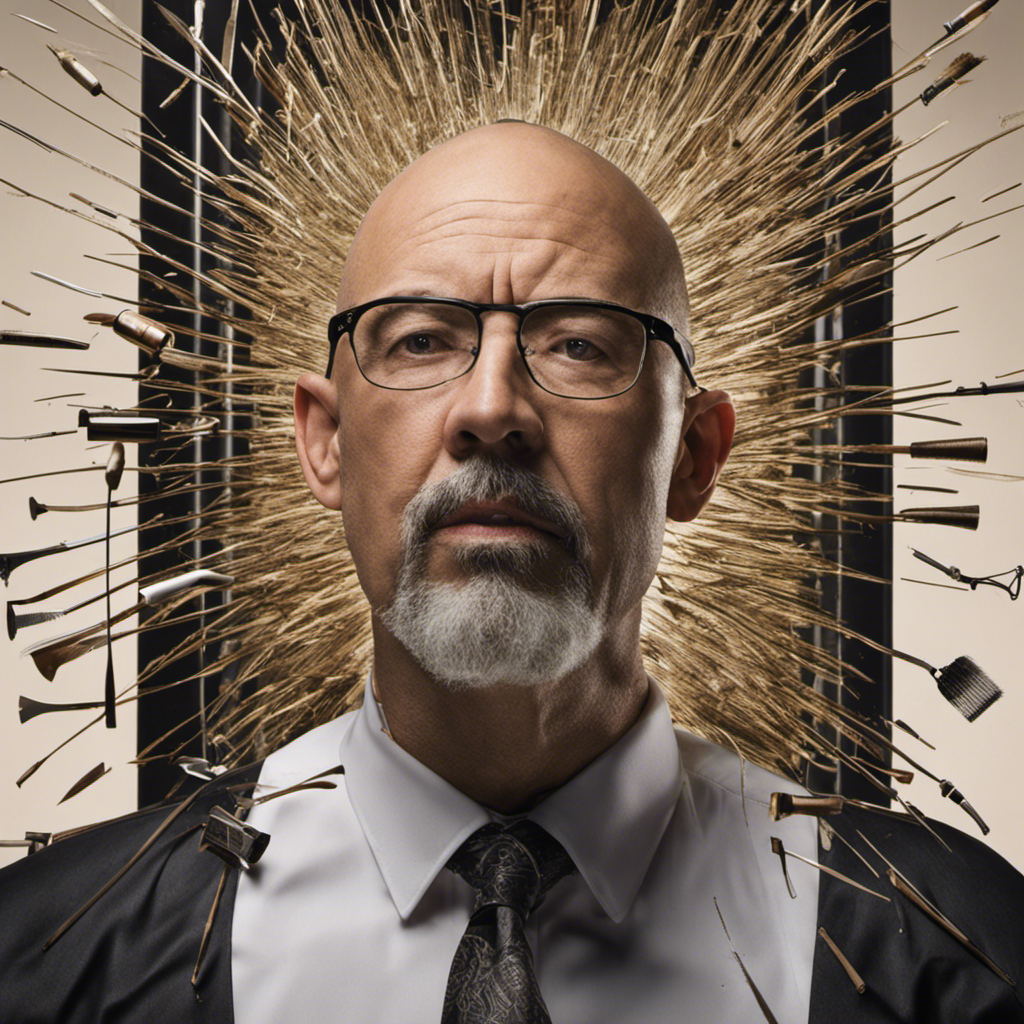
 Community and Stories2 months ago
Community and Stories2 months agoWhy Did Pat Shave His Head
-

 Community and Stories2 months ago
Community and Stories2 months agoWhy Did Bloodynine Shave His Head
-
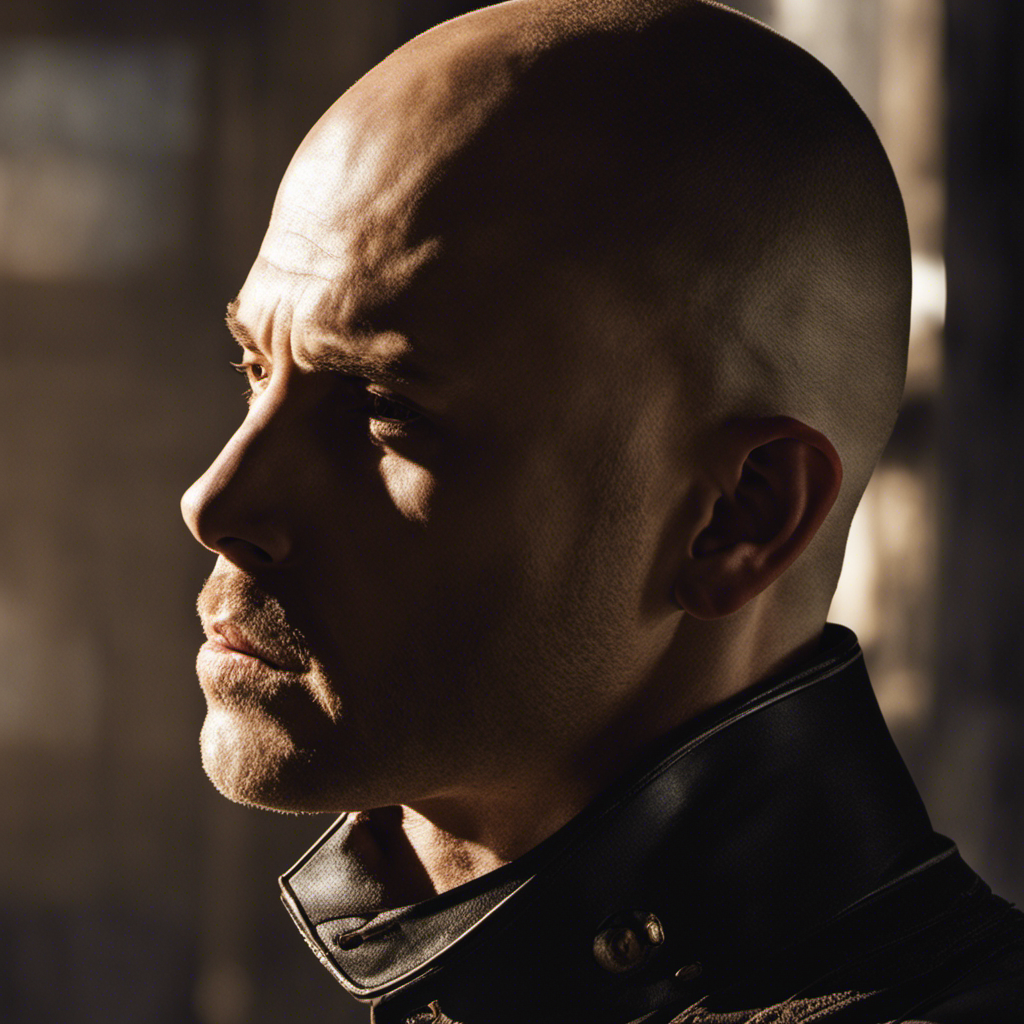
 Community and Stories3 weeks ago
Community and Stories3 weeks agoWhy Did Porter on Ghost Asylum Shave His Head






